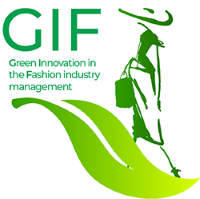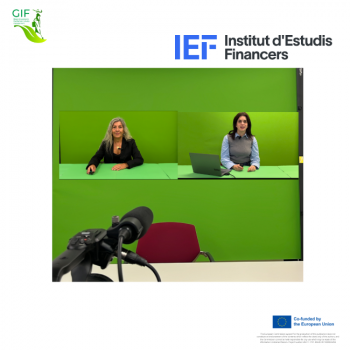News and events
Exploring Sustainability: Dive into the Latest GIF Newsletter Release
The GIF project is making waves with its latest developments aimed at promoting sustainability in the textile sector. Highlights include the formulation of a comprehensive Competence Framework and the creation of a state-of-the-art Training Kit. These tools, together with online courses, aim to equip stakeholders with the knowledge and resources needed to adopt sustainable practices. With collaboration at its core, the GIF project brings together partners from various sectors to drive positive change, especially in SMEs with a significant environmental footprint. In line with the objectives of the EU’s Green New Deal, the project is an important step towards a greener future for the fashion industry. Find out more by reading the latest project newsletter.
Fashion Education Embraces Sustainability: Insights from Beate Welp-Gerdes
Beate Welp-Gerdes, head of the B.A. Fashion Management course at the FHM, has already tested both the GIF competence framework and the short-learning program intensively and intends to integrate them permanently into her lectures: “We repeatedly receive feedback from the industry that sustainability aspects are elementary in every process step in the fashion industry. This is why it is so important to provide students with this basic knowledge directly during their first degree. The GIF competence framework offers an excellent structural basis for this and the short learning program can complement my lecture perfectly.”
New trends and challenges in fashion and texile industry: sustainability and new opportunities
Discover the Final Results of the GIF Project at Our Multiplier Events!
We are delighted to invite you to our final multiplier events, where we will unveil the exciting outcomes of the GIF Project! After months of hard work and international collaboration, we are ready to showcase the fruit of our labor in a final competency framework and a free-of-charge online course.
These events will take place in multiple locations across Europe:
- Romania
- Italy
- Germany
- Greece
- Spain
At each of these events, you’ll have the unique opportunity to immerse yourself in the achievements made, learn more about the final competency framework developed, and participate in our free online course, designed to disseminate the knowledge gained during this thrilling project.
Don’t miss this chance to be part of the culmination of years of collaborative work! Join us and witness the positive impact the GIF Project is having on education and training across Europe.
Final release of the GIF Competence Framework
Focusing on skill standardization, role clarity, and continuous improvement, this framework is crucial for training, assessment, and professional development in the sustainable fashion sector.

Exciting News: GIF Project Launches Pilot Training Program for a Greener Fashion/Textile Sector
In a groundbreaking move towards sustainability, the GIF project is proud to announce the initiation of pilot training programs by each organization involved in the project. Developed specifically for Small and Medium Enterprises (SMEs) in the fashion/textile sector, the training program addresses the environmental challenges associated with the industry.
About the Project:
GIF is committed to developing an online training course and a comprehensive training kit tailored for SMEs in the fashion/textile sector. Recognizing the sector’s significant environmental impact, the project aims to introduce new approaches and ideas for a “greener” textile industry.
What to Expect :
Participants in the training program will gain valuable insights into reducing emissions and pollution through an innovative e-learning course. The training will encompass best practices, introduce pioneering green initiatives, and facilitate knowledge exchange through multiplier events and information-sharing initiatives.
Why it Matters :
As we strive to meet the European Union’s 2050 objectives and align with the Sustainable Development Goals, addressing stakeholders’ best practices is pivotal. Empowering industry players with the tools to make their practices more sustainable is a crucial step towards a greener future.
Global Impact :
The initiative aligns with the plan indicated by the United Nations, particularly in collaboration with the UNEP agency. By fostering environmentally conscious practices within the fashion/textile sector, we contribute to a sustainable future not only for the industry but for the European Union as a whole.
The GIF project is excited about the transformative potential of this training program and looks forward to working collaboratively towards a greener, more sustainable future.
Stay tuned for updates on our progress and the positive changes emerging from this pioneering initiative!
Happy Holidays from the GIF Team!
As we celebrate the joy of this festive season, we're excited to embrace the future with groundbreaking advancements in our industry, especially in the realm of circular economy. Here are five key innovations in the European textile industry, aligned with circular economy principles, that we're thrilled to share:
1) Sustainable Materials: Embracing the circular economy, there's a significant shift towards materials that are not only eco-friendly but also recyclable and biodegradable. Innovations include fabrics made from recycled plastics and organic materials that reduce environmental impact.
2) Smart Textiles: Technology meets sustainability with smart fabrics that offer extended life cycles, reducing waste and energy consumption. These textiles can adapt to different needs and environments, exemplifying efficiency and innovation.
3) 3D Printing and Zero-Waste Design: 3D printing is a cornerstone of the circular economy in fashion, enabling designers to produce exactly what is needed, minimizing excess and waste.
4) Traceability and Transparency: With a focus on circularity, the industry is adopting technologies like blockchain to ensure full traceability of materials. This ensures that every stage of the production process adheres to ethical and sustainable practices.
5) Closed-Loop Recycling Systems: The industry is moving towards closed-loop systems where textile waste is recycled to create new fabrics, significantly reducing the environmental footprint and promoting a circular economy.
As we step into these innovative changes, we want to express our deepest gratitude for your support. May your holiday season be filled with happiness, and may the New Year bring sustainable and prosperous developments for all.
The GIF team wishes you a magical Christmas and a New Year filled with circular and innovation of textile! 
Latest news
Exciting news!
Lights, camera, action! We are currently filming videos with Prof. Dr. Volker Wittberg for our Erasmus project “Green Innovation in the Fashion industry management”.
These videos will be an integral part of our Short Learning Program and will cover important topics such as transforming fast fashion companies into fair fashion companies, combating greenwashing, exploring innovative fashion technologies, and deepening expertise in sustainable textiles.
Stay tuned, and let’s shape the future of sustainable fashion together!
#ErasmusProject #GreenInnovation #FashionManagement #SustainableFashion #ShortLearningProgram #ExpertInsights
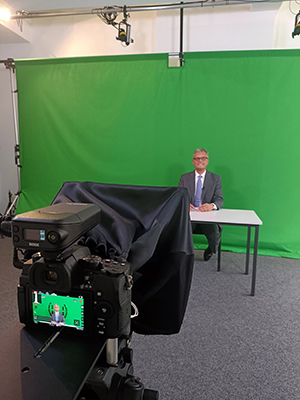
Fashion and Textiles
On 5 July 2023, the European Commission proposed a set of rules to make manufacturers responsible for the entire life cycle of textile products and to support the sustainable management of textile waste across the EU. This initiative will accelerate the development of the separate collection, sorting, reuse and recycling of textile products in the EU, in line with the European strategy for sustainable and circular textiles.
– Call for commitments – Textiles Ecosystem Transition Pathway
The purpose of this call is to gather the commitments of stakeholders on concrete initiatives to be taken to implement the actions identified by the Transition Pathway. It is an important way to show how stakeholders support the objectives of the Transition pathway and their commitment
to work together to support the dual transition of the ecosystem and strengthen its resilience and competitiveness. The commitments will help fill gaps, pool resources to achieve common goals and mobilise support for the co-implementation of the Transition Pathway.
The Commission will support this process by facilitating the exchange of knowledge and good practices. The initial deadline for submission of commitments is 30 September 2023. The invitation will remain open on a rotating basis. https://ec.europa.eu/eusurvey/runner/TextileTransitionPathwayCommitments
– Euronews “The Road To Green”, Episode 3: Textiles
In the third episode of The Road to Green, Euronews focuses on the transformation of the textile sector and the consequences for businesses, consumers and the planet.
In this episode of The Road to Green, we meet manufacturers, retailers, influencers and consumers who are already taking steps to transform the industry and show the opportunities of this transition for companies, consumers and the planet.
Their personal stories and experiences provide an overview of some of the solutions already available today.
The Road to Green first leads to Prato, Italy, an important European textile hub that is undergoing a transformation towards circular fashion. The episode continues in Vilnius, Lithuania, where Euronews meets a fashion journalist engaged in the sustainable fashion sector.
You can see the episode here.
3nd Newsletter
On July 2023 was issued the 3rd Newsletter. If you are curious about the results achieved and the next steps, please open this file.
Let's paint the fashion industry greener: Material innovators use algae to dye
When buying products, more and more people are looking for evidence that the product in question has been produced sustainably, but few have given any thought to the ink used in the printing or dyeing process. Most labelling or else textiles are dyed using black ink with petroleum-based pigments - namely carbon black.
Carbon black is a powdery byproduct of incomplete fossil fuel combustion, posing a threat to natural ecosystems. This use of this cheap but effective ink is thus very harmful to the environment.
Fortunately, a new type of black made from algae is attracting public attention. It aims to replace conventional carbon-based inks with ecological alternatives and promote a positive impact on the environment.
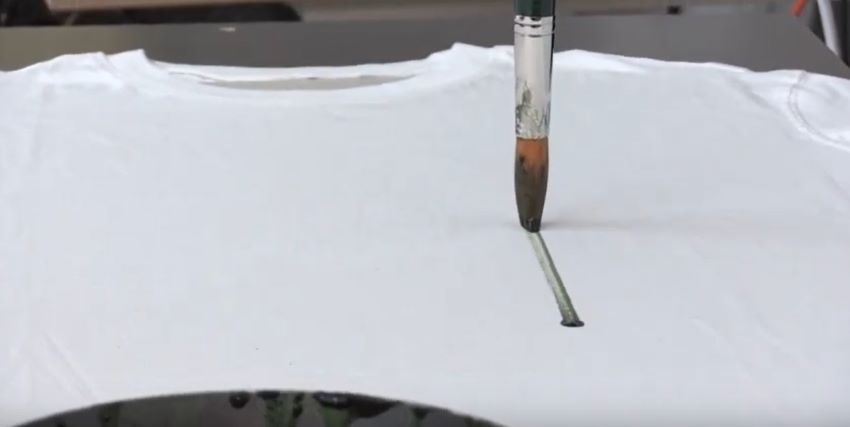
Algae ink is a non-toxic and biodegradable option that consists of color pigments derived from microalgae. This innovative approach reduces water and energy consumption by up to 90% compared to traditional dyeing methods and reduces carbon dioxide emissions by the same amount. In addition, algae are superior to land-based plant dyes when it comes to biomass production and carbon dioxide storage, which in turn counteracts the greenhouse effect.
The following three companies are pioneers in this field:
- Algaeing: https://www.algaeing.com/
- Mounid: https://www.mounid.se/
- Livingink: https://livingink.co/
GIF at the 10th Slow Fashion Next Sustainable Fashion Conference
This two-day meeting, which took place on 1 and 2 June at the Royal Botanical Garden CSIC in Madrid, was characterised by the diversity of the participants’ profiles. The conference was presented as an event for dialogue, connection and advancement of the sector and allowed networking where knowledge was exchanged. All of them shared their views on sustainability, fashion and the great challenges currently facing the textile industry.
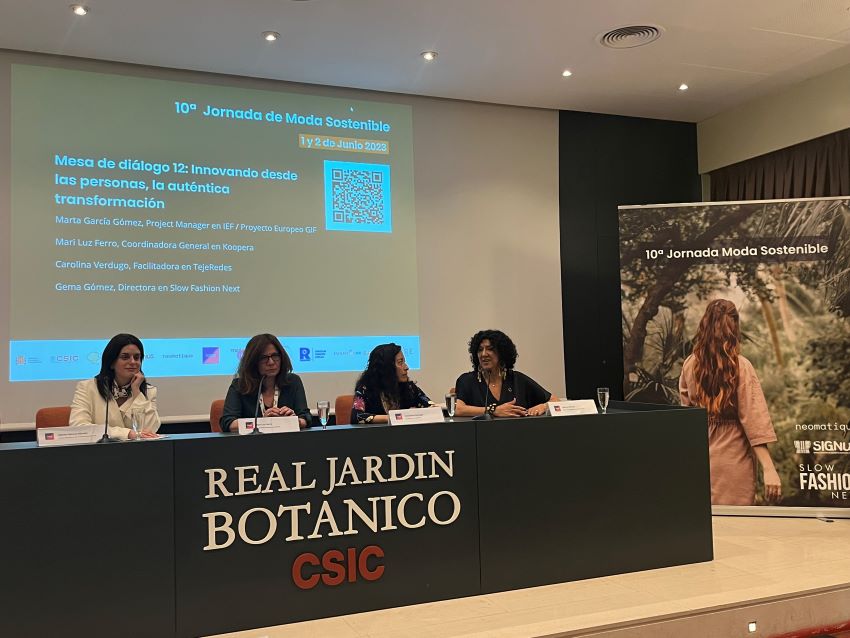
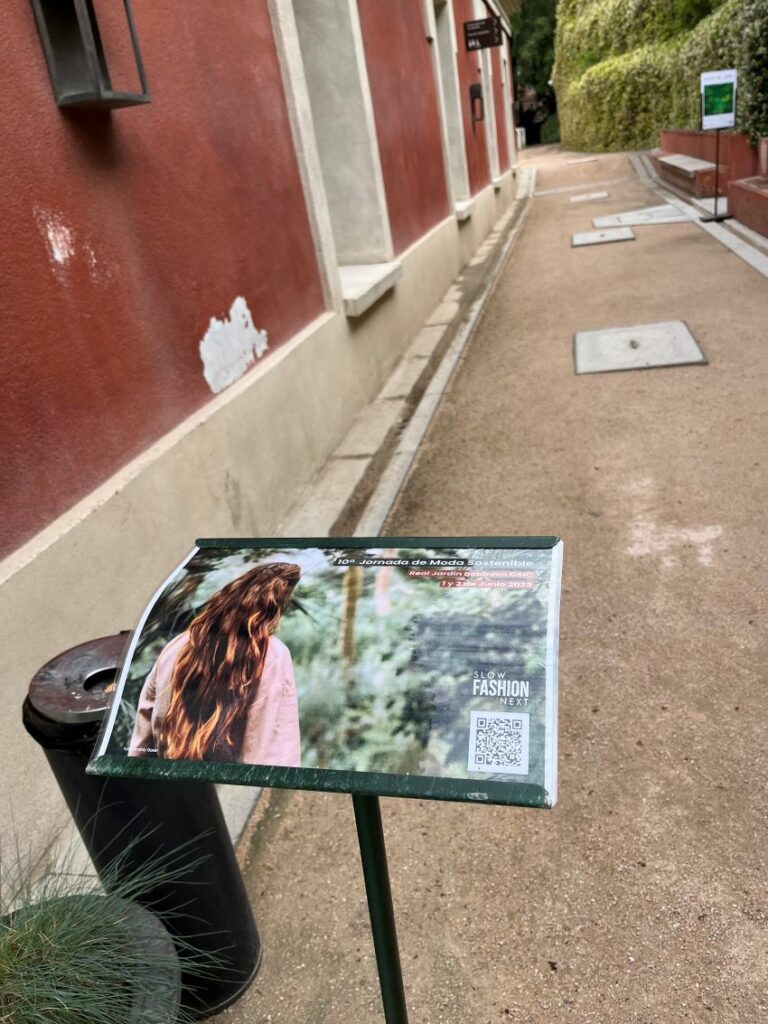
Table 12 was the table chosen to present the project in the colloquium that revolved around the innovation of people.
Many aspects were discussed such as the new European paradigm, scrap, new circular business, Greenwashing, themes and concepts that will be reflected in the course that the European partnership is carrying out. All the current results of the project were presented as well as the competence framework created through the results of the first activities, concept maps that have helped to define the future of sustainable fashion.
Relive some of the moments by following the hashtag #10JMS and Slow Fashion Next’s LinKedin page.
An upcoming Smart Textile Event is a fact!
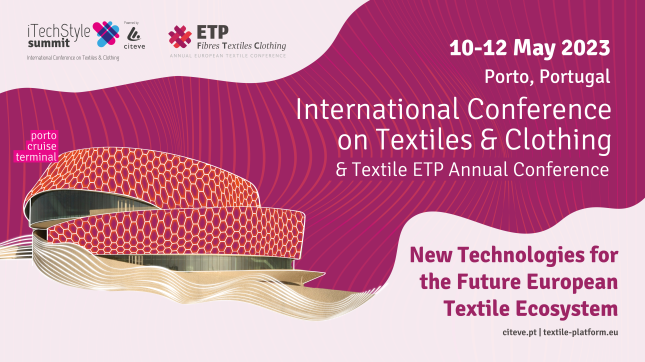
Tel: Tel:+32 2 285 4883.
Email: info@textile-platform.eu.
Website: www.textile-platform.eu/who-we-are
Good practice: From the idea to the project. The origin of EXSEAT
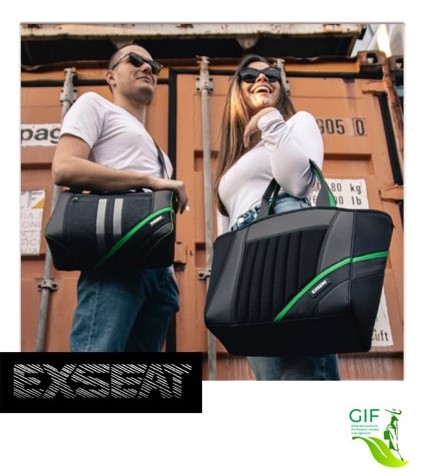
Exseat is an Italian SME that produces bags, backpacks and other accessories using seat belts and fabrics obtained from disused vehicles. They’ve chosen to use these materials especially for the great advantages they offer in terms of versatility and robustness.
Exseat is a perfect example of how to give life to a sustainable brand with a strong personality, exploiting the benefits of the circular economy and minimizing at the same time environmental impact in the fashion industry.
Additional information here: https://exseatbag.com/en/
Transnational Partner Meeting in Berlin
During the meeting, partners have been working on the first draft of the Competence Framework, which will be presented to stakeholders in May to receive their feedback and then be able to consolidate the final version.
The first draft of the Short Learning Program curriculum has also be discussed.
Moreover, the meeting has been the opportunity to work in person and consolidate the relationship between partners and institutions.
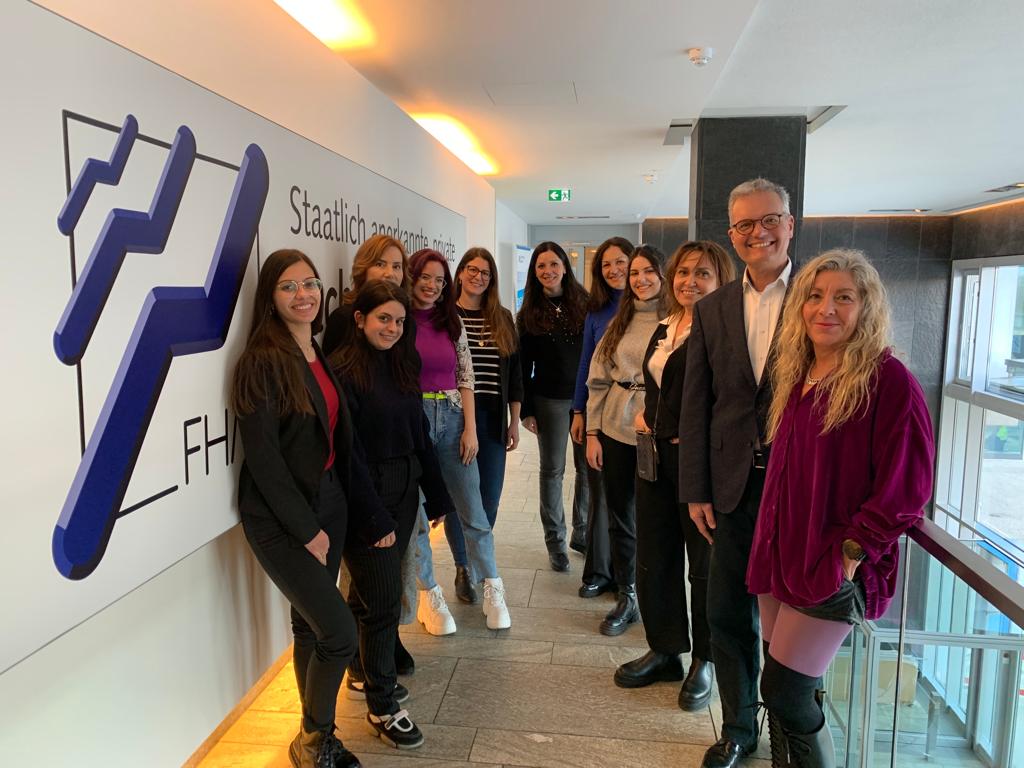
2nd Newsletter
On February 2023 was issued the 2nd Newsletter. If you are curious about the results achieved and the next steps, please open this file.
Regulation in the Fashion Industry
The European Commission has set the goal to completely move away from fast fashion by 2030, and make the fashion industry circular. This would mean that all textile products placed on the EU market should be durable, recyclable, and repairable. Additionally, it should be free from any toxins and should be made with the environmental and social impact in mind. To reach this goal, the European Commission has introduced its first campaign. This campaign is called the ReSet the Trend and the aim is to raise awareness amongst European citizens on sustainable fashion.
The environmental cost of our clothing consumption habit
As consumers, simply asking ourselves if we really need something before we buy is a vital step to cutting how much we consume.If we really do need something, opting for second-hand first and exploring alternative business models like sharing or leasing can really help to keep products in use for longer and lessen the environmental impact of our purchasing decisions.For example in Scotland leasing models exist for everything from clothing and toys to DIY equipment, and even commercial lighting.
Opting for ‘alternative’ business models over outright ownership sends a powerful market signal that consumers want more sustainable choices, which can help drive further circular economy innovation.
Businesses have a part to play too, from designing products for easy repair to embedding reuse and recyclability. The circular economy represents an opportunity for brands to close the gap on their net zero objectives, futureproof their operations, and respond to customer demand for more sustainable options.
1st Infographic
GIF Brochure
1st Newsletter
On September 2022 the first Newsletter was issued.
If you wish to know more about the GIF project and the next steps, please open this file
